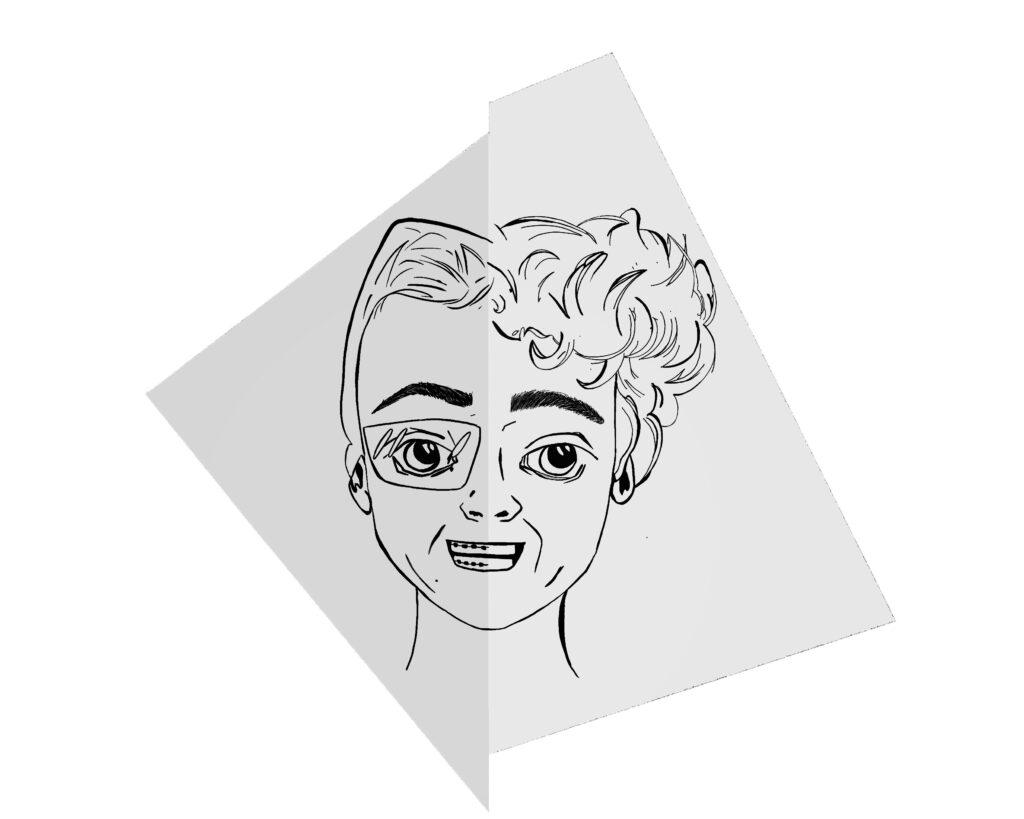Stepping out of my bright blue Subaru Crosstrek after driving to school for the first time on Aug. 12, nostalgia hit me like a wave. Swarms of fellow teenagers, desperate to find their classes and friends, huddled around one another, glowing at the sight of familiar faces. As I listened to the cacophony of conversations across the quad, I couldn’t help feeling overwhelmed by the large crowds after a year in isolation.
Like most people returning to in-person school, I joined in on a “smooth” surface level conversation with my friends — many of whom I had not spoken to since freshman year.
I listened to them talk about rigorously studying for the SAT, going on summer vacations and finding new extracurricular opportunities. In the spirit of the conversation, I began to talk about my volunteering experience as a counselor-in-training at a summer camp, but as soon as I started speaking, awkward silences cropped up.
As my peers turned toward me with confused stares, I realized that I was unrecognizable to many of them, leading me to reflect on my identity and how I matured during the pandemic.
In freshman year, I wore thick glasses that magnified the size of my eyes, had clunky braces that covered my teeth and was less mature due to the lack of awareness I had of my surroundings. My hair was also significantly shorter, giving me the classic nerd look. I am not saying my freshman-year look was bad, but it was definitely not the peak of fashion.
After a rehearsal, my fellow marching band members, who I’ve known since the beginning of high school, met in the center of the football field for a closing discussion. I sat with some of my peers who had not seen me since freshman year and, while chatting with them, they asked if I was new to the school.
I responded lightheartedly, explaining to them that I was the same Zach as before, but that I looked a lot different.
They were shocked. It was unbelievable to them that I was the same person they had previously known.
My experiences being unrecognizable to my peers made me doubt myself when approaching other students. Before opening my mouth to speak, I had to ask myself, “Would they remember me?”
If the answer to that question was no, I would avoid talking to them altogether.
However, this was impractical because the majority of my classmates were confused about my identity, and I couldn’t stay silent forever. Instead, I started each interaction by immediately stating my name to those I knew from freshman year, which prevented the awkwardness of them not recognizing me. Even while greeting one of my teachers from freshman year, I stated my name as if I was meeting her for the first time.
As comical as it was, I found the rehearsal instance to be eye-opening; our interaction caused me to truly internalize the development I had made over the pandemic.
Returning to school as a taller teenager without rectangular glasses or braces was a drastic change. It made conversing with my old friends somewhat awkward with uncomfortable comments about my freshman self.
“You glowed up,” my peers, some of whom I’d never even spoken to before, said.
I was not fond of this comment. The phrase implied that I became a better version of myself, which I thought was untrue. I was still the same Zach, just a little more comfortable with my identity.
I had grown into myself rather than become a heightened version of who I used to be.
For instance, imagine that a child took a bite out of some scrambled eggs that their parents had prepared in a different way than before, and said, “I really like these eggs, it’s better than how you made them before.”
I am sure that the parent would feel happy that their child enjoyed their food, but at the same time, disappointed that their eggs were not good enough before. This same idea applies to my growth as a person.
The pandemic helped me learn about myself in ways I would have never realized otherwise. Quarantine forced me to connect with myself rather than constantly depending on interactions with others.
The long, sometimes dreadful hours locked away in my room with little outside interaction sparked new mental development and self-discovery. As I began to work in an isolated environment, I matured by developing personal strategies in order to continue to flourish socially, a skill that I have carried over into the in-person world. Without the constant interaction with others, I taught myself that taking a step away from others occasionally in order to collect my own thoughts could be really beneficial for me socially.
In a strange way, the pandemic quarantines had positives for me. The hardships of 2020 made me more mature and changed my outlook on life. That I was unrecognizable to so many people showed how much I had changed in two years.
I couldn’t be more proud of my development and maturation as a person.


























